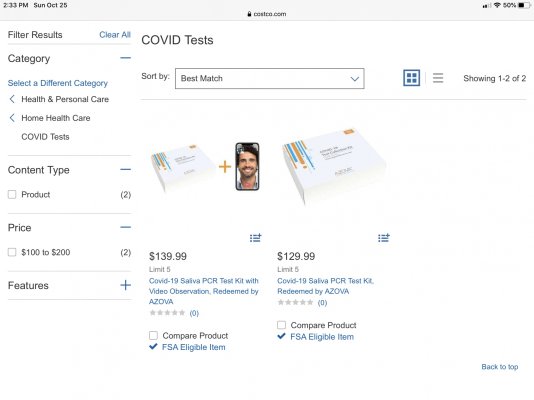This is from Cigna when we log in.
Home test results in 1-3 days after receiving.
Link from there to here: https://www.pixel.labcorp.com/at-home-test-kits/covid-19-test
Home test results in 1-3 days after receiving.
Check your symptoms or get your COVID-19 at-home test kit
Experiencing symptoms you think may be related to COVID-19? Answer a few simple questions to assess your symptoms and risk level. If you need to be tested for COVID-19, Cigna is waiving out-of-pocket costs for FDA-approved diagnostic tests.
Access COVID-19 testing at home with an FDA-approved specimen collection kit from LabCorp. Simply complete a short online survey and provide your Cigna insurance information. LabCorp will mail you an at-home specimen collection kit and a prepaid mailer to send back for testing.
Results are available 1-3 days after sample is received at lab. Must be 18 or older. Not available in Puerto Rico.
Button: Assess Symptoms Button: Order COVID-19 Test Kit
Link from there to here: https://www.pixel.labcorp.com/at-home-test-kits/covid-19-test
Find out if you currently have COVID-19 without leaving home.
We'll send you an at-home kit to collect your nasal swab sample and ship it back to our lab. Our lab will test your sample for SARS-CoV-2, the virus that causes coronavirus disease (also called COVID-19), a respiratory illness.
The average time to deliver results is currently 24-48 hrs from when your sample is received at the lab. Our labs process samples seven days a week.
Please note this test does not detect antibodies or immunity; it is designed to determine active infection with the virus that causes COVID-19. For more information on antibody testing visit LabCorp.com.


 .
.